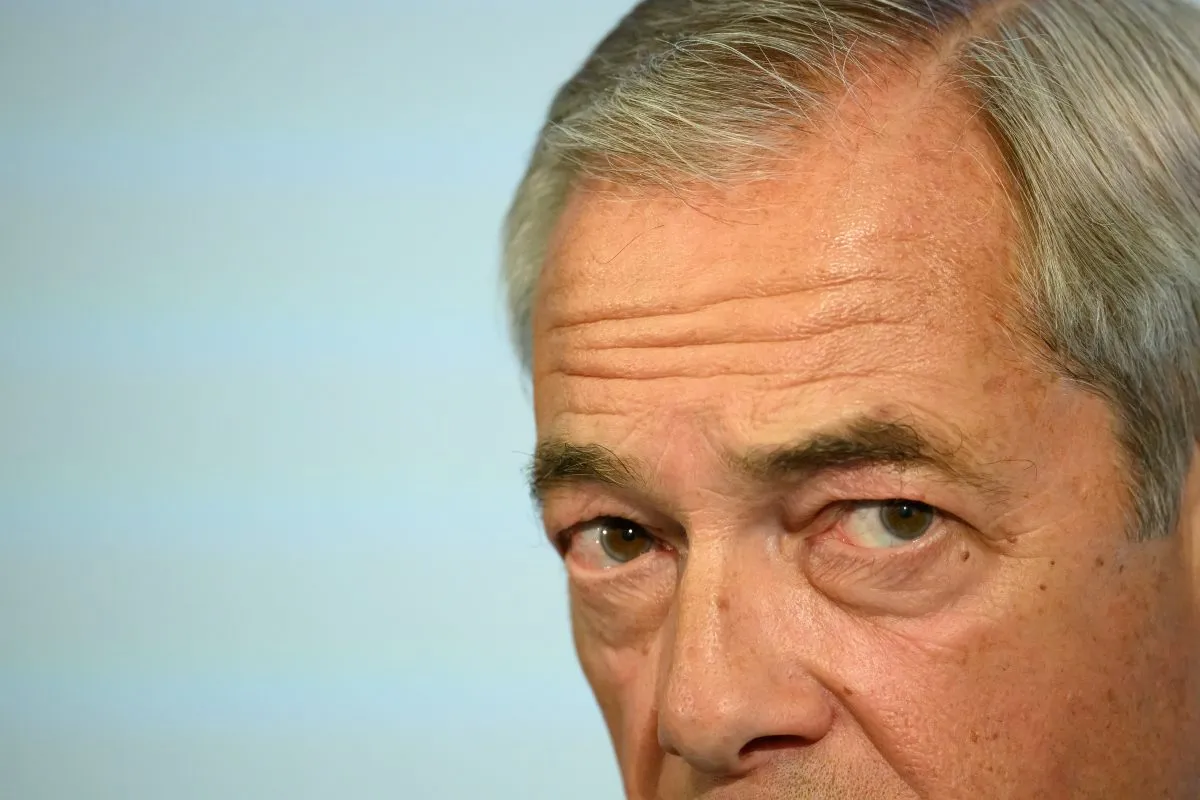Copyright cityam

For all its “rabble-rousing” flourishes, Nigel Farage’s speech showed he understands that the City isn’t a London vanity project, it’s the bedrock of the entire UK economy, says Matthew Bowles Britain’s economic situation is hard to sugar-coat. Taxation is at some of the highest levels since Attlee’s day, and parts of the British economy are locked into a productivity death-spiral, particularly our sprawling, debt-crippled public sector. Against that grim backdrop, Nigel Farage’s press conference focused on the people who might be able to get Britain out of this mess: business, entrepreneurs and wealth creators. One emphasis was on the UK’s most important industry – financial services – and on creating conditions in which the country’s wealth creators can thrive again. Farage outlined how the UK’s growth crisis cannot be fixed without reviving the City. It was a simple pitch: if the government keeps punishing capital, talent and enterprise, Britain’s stagnation will worsen. He leant on analysis from Capital Economics, which shows Rachel Reeves is raising taxes at the fastest pace of any Chancellor since the 1970s, a shift that’s already driven investors and entrepreneurs abroad. Current estimates indicate that 16,500 millionaires will have left Britain this calendar year, roughly one every 45 minutes since Labour took power. The data underlines why this matters. The financial and related professional services sector contributed around £307bn to the UK economy in 2024 – roughly 12 per cent of GDP – and generated £110bn in tax revenue, according to the City of London Corporation. Exports from the sector totalled £175bn, making it one of Britain’s few global surplus industries. London’s status as a financial centre supports over 2.5m jobs nationwide, directly and indirectly. Farage argued that this success story is being quietly eroded by excessive regulation and an uncompetitive tax regime. He pointed to the lingering effects of EU-era directives that, in his view, still hinder the Square Mile’s global competitiveness. Brexit freedoms Behind the scenes the City still operates in a regulatory environment thick with ‘assimilated’ EU-law: rules originally drafted in Brussels (eg for trading platforms under MiFID II, or for capital buffers under CRD/CRR) which still underpin much British law today. The UK’s Financial Services and Markets Act 2023 and the ‘Smarter Regulatory Framework’ programme under the last government marked the start of unwinding that legacy, but Labour seem unlikely to carry this forward. A reforming government that genuinely wants to make the City more competitive must therefore look not just at tax or incentive regimes, but at which EU-derived rules are adding cost today – and ask whether they still make sense in a London-first, global-connected economy. Money-laundering rules and de-risking requirements have, Farage said, led to the “de-banking” of legitimate firms. This is music to our ears, especially as Prosperity Institute is campaigning to end de-banking. Meanwhile, the UK’s tentative approach to stablecoins and digital assets has allowed the United States, Dubai and Singapore to get the jump on us. Farage’s speech was light on detail but clear in intent. Reform UK, he said, would pursue the “most pro-business, pro-entrepreneurship government in modern times”. That means pruning regulation, opening a debate with the Bank of England over interest on reserves, and introducing a “Britannia Card” – a proposal to encourage former non-doms to return to Britain while ensuring they pay UK taxes. The wider fiscal context framed Farage’s case. Welfare spending, Farage noted, now stands at over £300bn – more even than total NHS expenditure – and productivity in public services remains dismal. Yet rather than tackling costs, Labour has opted to squeeze employers further by raising National Insurance contributions in recent times, a move that has likely cost a vast quantity of lost investment. For all its “rabble-rousing” flourishes, the argument contained a kernel of realism that policymakers in Westminster often miss. Britain’s financial services sector is not just a London vanity project; it provides the tax base that funds a significant portion of the state. When politicians treat the City as a convenient target rather than a partner, the rest of the economy ultimately foots the bill. That doesn’t mean lax regulation. The post-2008 lessons about risk and consumer protection still matter. But there is a difference between sensible oversight and a rulebook so dense that capital looks elsewhere. Since Brexit, the UK has had the power to write its own financial-services law; it has yet to use it decisively. Farage’s press conference won’t have reassured everyone. The detail is still to come. Yet his instinct to champion the City and wealth creators struck a note few politicians have dared to play in recent years. If Reeves is serious about restoring growth, she could do worse than conceding the underlying point. Taxing and regulating the wealthy who pay for Britain’s public services is a short-term fix with long-term costs. Creating a competitive, confident City is not a political luxury. It’s the closest thing Britain has to a realistic growth strategy. Matthew Bowles is senior policy researcher at the Prosperity Institute



